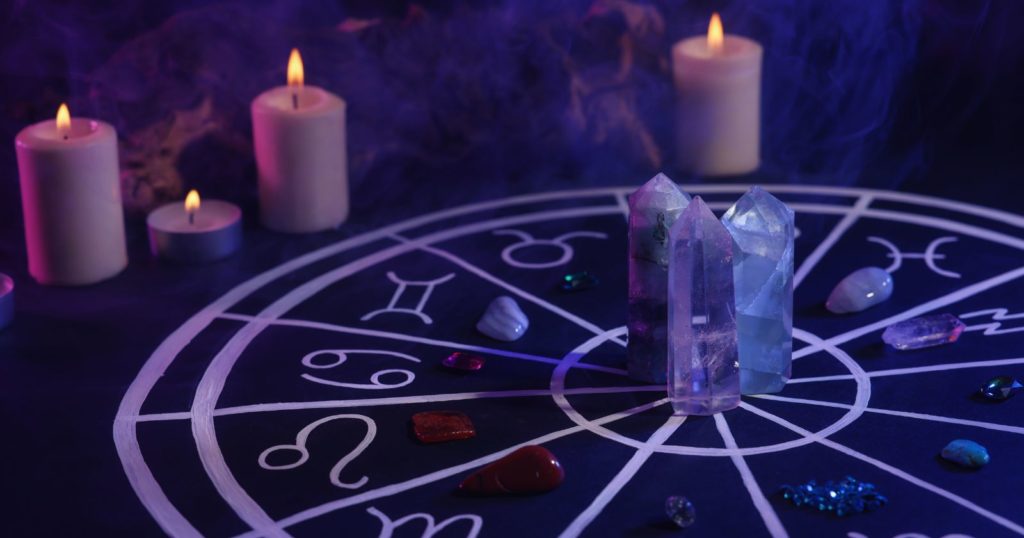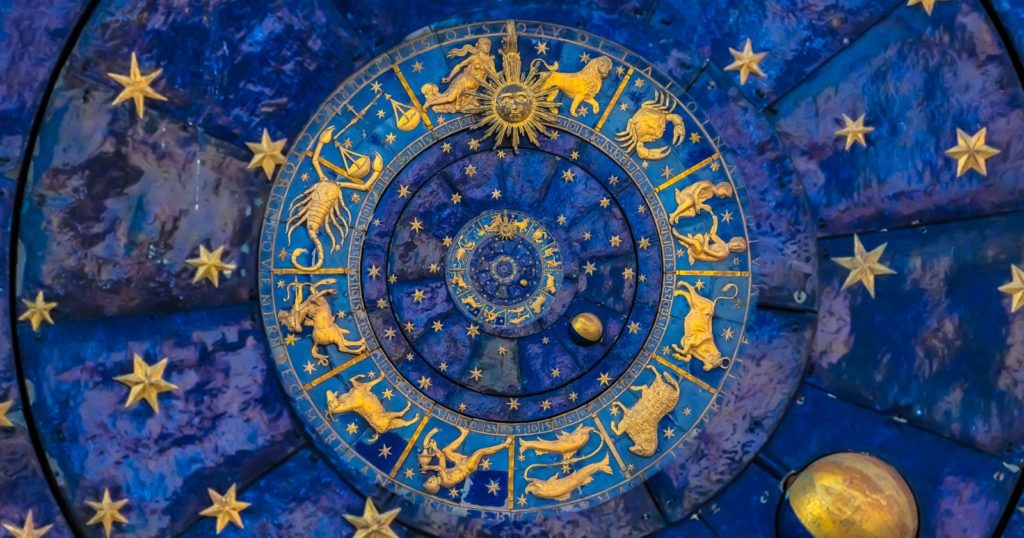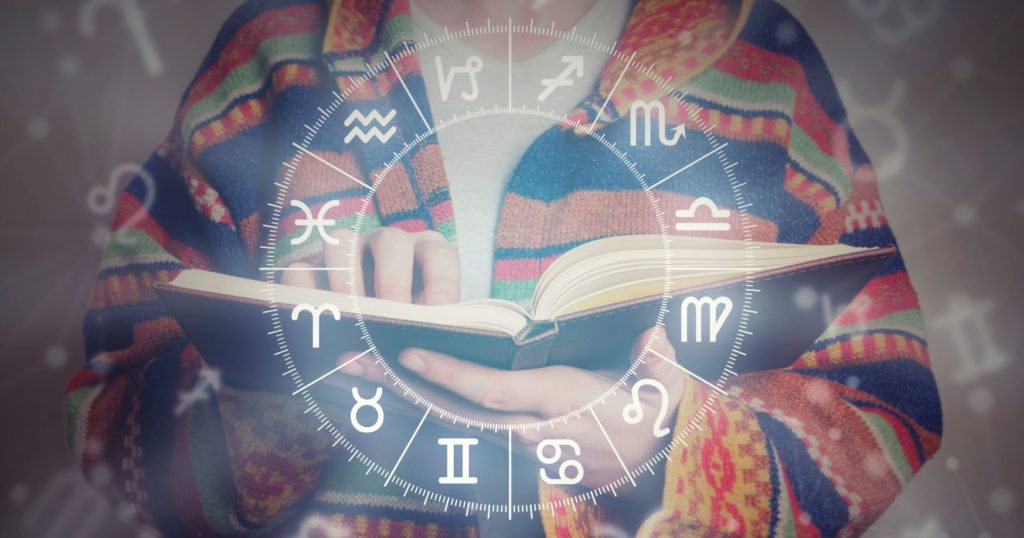Introduction to Astrology: An Ancient Practice with Modern Appeal
Astrology, the belief system that suggests there is a significant relationship between celestial events and human experiences, has been a part of human culture for millennia. Rooted in ancient civilizations, it has persisted through the ages, and today, in a technologically advanced society, it seems to be experiencing a resurgence. But despite its enduring popularity, a key question arises, ‘Is astrology real?’
Astrology differs vastly from astronomy, which is the scientific study of celestial objects, space, and the physical universe. While the former uses celestial observations to make predictions about human behavior and future events, the latter is concerned with understanding the physical properties and processes of the celestial objects themselves.
The allure of astrology lies largely in its promise of providing answers to life’s biggest questions. It offers a framework for understanding ourselves, our relationships, and our place in the universe. This allure transcends cultural and geographical boundaries, with astrological systems found in cultures all over the world, each with its own unique approach to interpreting the stars.
The Scientific Perspective on Astrology
Despite its widespread appeal, astrology’s validity has been a point of contention among scientists for centuries. Astrology is often categorized as a pseudoscience, a belief or process mistakenly regarded as scientific, due to its lack of empirical evidence and falsifiability. Simply put, much of astrology’s claims are not testable by scientific methods, which is a core tenet of scientific inquiry.
Critics often point out that astrological predictions are often vague and can be interpreted in multiple ways, a phenomenon known as the Forer or Barnum effect. Moreover, there is a clear absence of a proposed mechanism through which celestial bodies could influence personal traits or events on Earth.
While some people claim anecdotal evidence in support of astrology, the scientific community values empirical evidence derived from systematic observation, measurement, and experimentation. Anecdotal evidence, due to its subjective nature, is often seen as unreliable.
Astrology and Psychology: The Human Factor
Despite the scientific skepticism, astrology’s popularity can be partly explained by psychological phenomena. Astrology provides narratives that help people make sense of complex situations, enhance self-understanding, and cope with uncertainty.
Research in psychology shows that humans are pattern-seeking creatures. We have a natural tendency to seek connections and create narratives, even where none exist – a phenomenon known as apophenia. This cognitive bias might explain why some people see accurate predictions in their horoscopes, even though they are often general enough to apply to a wide range of people.
Confirmation bias also plays a role. This is the tendency to seek, interpret, and remember information in a way that confirms our pre-existing beliefs while ignoring or dismissing conflicting evidence. This bias might lead individuals to remember the accurate astrological predictions while ignoring the inaccurate ones.
The Role of Personality in Astrological Belief
Astrology also interacts with our personality traits and our need for self-expression. Many people find comfort in the distinct identity that their zodiac sign provides, helping them to express and understand themselves better. It can be an appealing method of self-reflection, encouraging introspection, self-awareness, and personal growth.
In terms of personality, studies have shown correlations between belief in astrology and certain traits like high neuroticism and low conscientiousness and agreeableness. However, correlation does not imply causation, and more research is needed to understand these relationships.
Regardless of its scientific veracity, astrology’s psychological value should not be underestimated. It seems to fulfil an essential human need for understanding and predicting the world around us. The power of belief can have significant effects on individuals and societies. However, it’s important to note that belief in something doesn’t make it scientifically accurate or universally true.
A Brief History of Astrology: Connecting the Dots Through Time
Astrology has a long and complex history that traces back thousands of years. Originating in the ancient civilizations of Mesopotamia, astrology eventually spread to Egypt, Greece, Rome, and later, the Islamic world, and finally the West. It has been intertwined with religion, philosophy, and the natural sciences, constantly evolving in response to cultural and intellectual shifts.
In ancient times, astrology was not distinguished from astronomy. The stars and planets were considered divine entities whose movements across the sky were interpreted as signs from the gods. The ‘science of the stars’ was used for various purposes, from predicting seasonal changes to guiding kings in political decisions.
During the Middle Ages, Islamic scholars preserved and expanded upon astrological knowledge, translating Greek and Roman texts and developing new techniques. The ‘science of the stars’ was seen as a legitimate form of knowledge and a useful tool for understanding the cosmos and human life.
The Renaissance saw astrology’s peak in Europe, with its influence permeating medicine, politics, and culture. However, the Scientific Revolution of the 17th century challenged astrology’s status. Astronomers began to emphasize empirical evidence, leading to the separation of astrology and astronomy and the relegation of the former to the realm of superstition.
Astrology vs. Astronomy: Distinguishing Science from Pseudoscience
Astrology and astronomy started as one, but they diverged with the advent of the scientific method. Astronomy evolved into a respected branch of science, focusing on the study of celestial objects, space, and the physical universe as a whole.
Astrology, on the other hand, continues to focus on the belief that celestial events impact human affairs. Despite this fundamental difference, both continue to captivate humanity’s imagination, albeit in different ways.
The distinction between science and pseudoscience can be clarified using philosopher of science Karl Popper’s concept of falsifiability. According to Popper, a theory is scientific only if it can, in principle, be proven wrong. Astrology, however, makes broad and vague predictions that are hard to test definitively. Moreover, it lacks a scientifically plausible mechanism explaining how distant celestial bodies could influence individual personality traits or life events.
The Great Debate: Is Astrology a Science?
The debate about whether astrology is a science has raged for centuries, with arguments on both sides. Those who advocate for astrology often point out its ancient roots and widespread use as evidence of its legitimacy. However, these arguments do not satisfy the scientific criterion.
Astrology lacks several key elements that define science. It does not use the scientific method, which involves formulating hypotheses, testing them against empirical evidence, and refining them based on the results. Its predictions are often vague, making it impossible to prove them wrong definitively, and it lacks a plausible mechanism of action.
However, the lack of scientific validity does not negate the potential value that people derive from astrology. It serves various psychological needs, such as providing a sense of identity and control over one’s life, offering a narrative to explain complex events, and fostering a sense of connection with the universe.
Astrology in the Modern World: A Resurgence of Belief
Astrology has experienced a resurgence in popularity in the modern world, particularly among young people. This rise can be attributed to various factors, including the increasing use of astrology apps, the spread of astrological memes on social media, and a general trend towards personalization and self-exploration.
This revival indicates that despite scientific skepticism, astrology continues to fulfill psychological needs. It provides an accessible framework for introspection, decision-making, and coping with uncertainty.
Nevertheless, the resurgence of astrology raises important questions about the role of scientific literacy in our society. While it is vital to respect individual beliefs and the psychological value they provide, it’s also important to promote an understanding of what constitutes scientific evidence and critical thinking.
Why People Believe in Astrology: The Psychological Explanation
The intriguing question of why many people believe in astrology, despite its lack of scientific evidence, can be partially answered by delving into psychology. A range of cognitive biases and heuristics—mental shortcuts that our brains use to make decision-making quicker and easier—may contribute to astrological beliefs.
The Barnum Effect: Named after showman P.T. Barnum, this refers to the tendency to interpret generic descriptions as uniquely applicable to ourselves. This effect is a key element in horoscopes, which are often written in a manner that can apply to anyone.
Confirmation Bias: Humans have a natural tendency to seek out, interpret, and recall information in a way that confirms their pre-existing beliefs and ideas. Consequently, when an astrological prediction aligns with someone’s experience, they may remember it and attribute it to the accuracy of astrology, conveniently forgetting or disregarding any predictions that didn’t match their experiences.
The Availability Heuristic: This mental shortcut involves making judgments based on readily available information, often obtained through our personal experiences or the experiences of those close to us. If someone frequently encounters others who believe in astrology and share anecdotes about its accuracy, they may also come to believe in astrology.
Scientific Studies on Astrology: What Does the Research Say?
When it comes to testing the claims of astrology scientifically, the evidence falls short. Numerous studies have investigated whether there’s any correlation between astrological signs and various aspects of personality, life events, or compatibility, but the results have been largely inconsistent or negative.
One of the most famous studies is that conducted by French statistician Michel Gauquelin in the 1950s. While he found some correlations between planetary positions and career success, subsequent researchers pointed out several methodological issues, and further studies failed to replicate the results.
Another well-known study was conducted by Shawn Carlson and published in Nature in 1985. It concluded that astrologers were unable to match birth charts with psychological profiles any better than chance. This study is often cited as one of the most comprehensive tests of astrology.
The takeaway from these studies is clear: Despite many attempts to validate astrological predictions scientifically, there’s no empirical evidence to support the claims of astrology.
Astrology: A Matter of Faith, Not Fact
Despite the lack of scientific evidence supporting astrology, it continues to be a source of comfort, guidance, and identity for many. For those who believe, it provides a symbolic language or a spiritual framework to understand the world and one’s place in it.
From a psychological perspective, belief in astrology can be seen as part of our universal quest for meaning, purpose, and connection. It’s an attempt to make sense of the world and our experiences in it, a lens through which we interpret reality.
However, from a scientific perspective, astrology’s predictive and explanatory power is not supported by empirical evidence. Its lack of falsifiability, the absence of a plausible mechanism, and the failure to pass rigorous scientific testing make it unscientific by definition.
It’s crucial to distinguish between the value that astrology holds for its believers and its validity as a scientific system. As much as astrology offers symbolic, personal, or spiritual insights, it doesn’t provide explanations that are scientifically verifiable or universally applicable.
Conclusions: Astrology in a Science-Driven Society
The study of astrology’s validity offers a fascinating journey into the realms of belief, culture, psychology, and science. Astrology, despite its lack of scientific standing, continues to hold sway over millions of people worldwide. It remains a significant cultural and psychological phenomenon, offering solace, inspiration, and a sense of identity to many.
Astrology’s resilience in the face of scientific skepticism is a testament to its powerful symbolic and psychological appeal. It addresses deep-seated human needs for understanding, purpose, and connection, offering a narrative framework to make sense of the complex world around us. In a rapidly changing and often uncertain world, astrology provides a sense of order and predictability, however illusionary it may be.
However, the compelling nature of astrological beliefs should not blind us to the importance of critical thinking and scientific literacy. While astrology can serve as a useful tool for introspection and personal growth, it should not substitute for evidence-based decision-making in areas that have significant real-world implications, such as health, education, and public policy.
It’s crucial to promote an understanding of what constitutes scientific evidence and the importance of empirical testing. This can help individuals make informed decisions and develop a more nuanced understanding of the world, balancing their spiritual or personal beliefs with empirical reality.
To navigate the divide between astrology and science, we need respectful dialogue, open-minded inquiry, and a willingness to question our assumptions. Believers and skeptics alike can benefit from engaging in thoughtful discussions about astrology’s role in our lives and its implications for our understanding of the world.
Ultimately, the question ‘Is astrology real?’ may be less important than ‘What does astrology mean to us, and why does it matter?’. These reflections can provide valuable insights into the human quest for meaning, the power of belief, and the fascinating interplay between culture, psychology, and science.
Resources
- Carlson, S. (1985). A double-blind test of astrology. Nature, 318(6045), 419–425.
- French, C., Haque, U., Bunton-Stasyshyn, R., & Davis, R. (2018). The “Barnum Effect” in Personality Assessment: A Review of the Literature. Psychology, 9, 421-431.
- Dean, G., & Mather, A. (2009). Recent Advances in Natal Astrology: A Critical Review 1900-1976. The Astrological Association.




